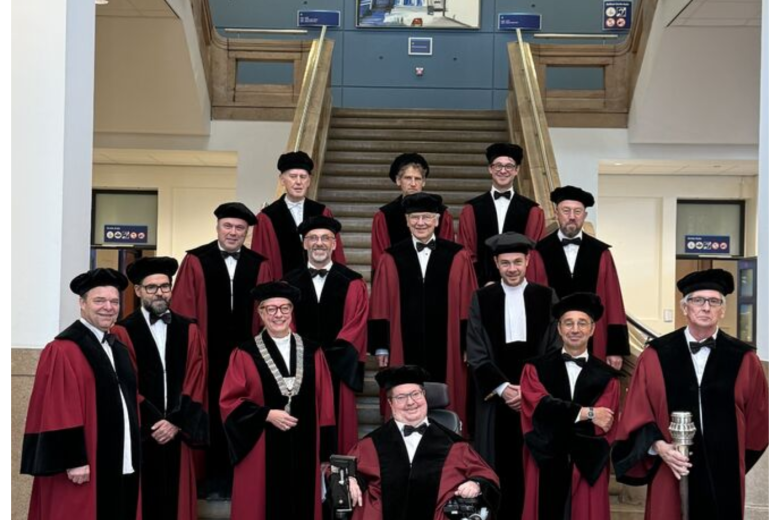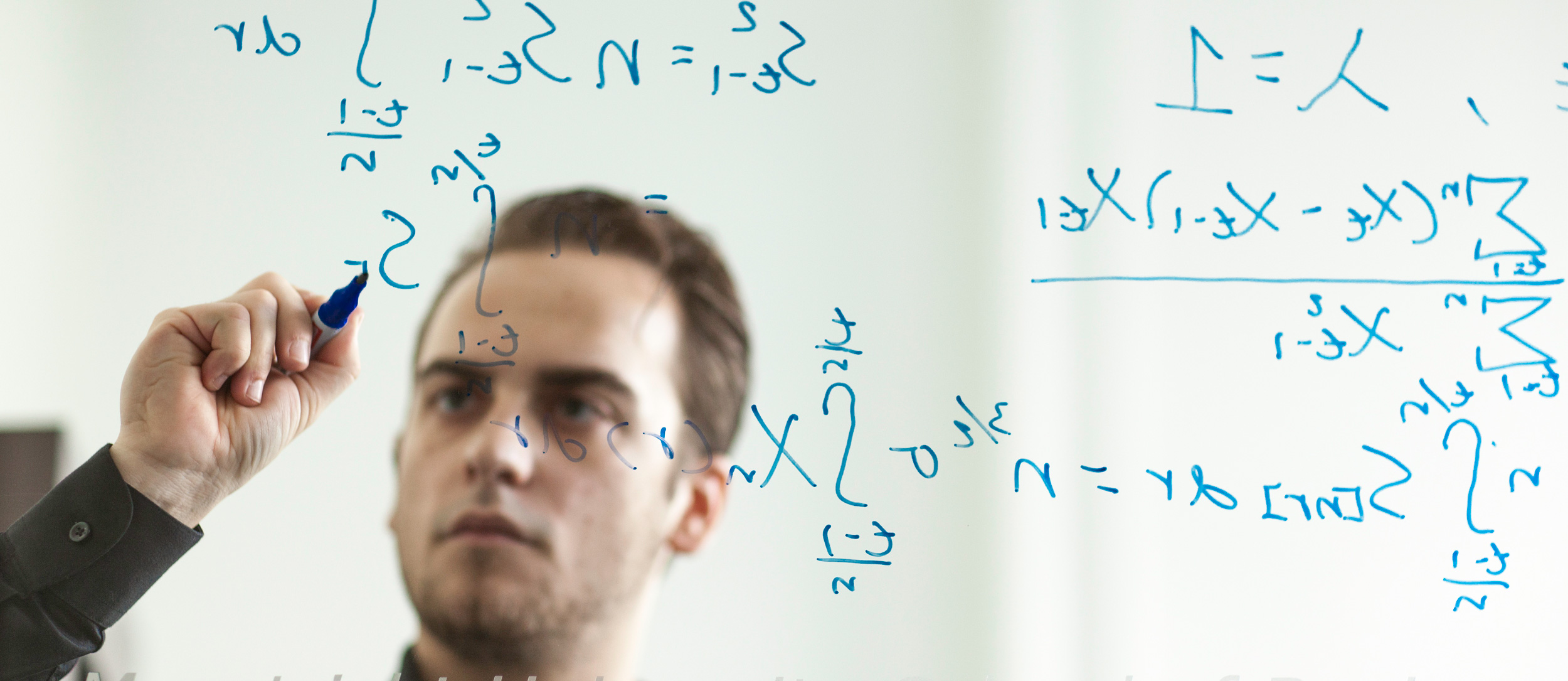Department of Quantitative Economics
The Department of Quantitative Economics teaches and conducts research in the areas of Actuarial Science, Econometrics, Mathematical Economics and Operations Research. Both in teaching and in research it achieves excellent standards. The Department of Quantitative Economics is largely in charge of the BSc programme in Econometrics & Operations Research Econometrics & Operations Research | Maastricht University and the MSc programme in Econometrics & Operations Research Econometrics and Operations Research | Maastricht University. Moreover, the department also offers courses in all other BSc and MSc programmes of the SBE. The department publishes papers in highly ranked international scientific journals, such as Journal of Econometrics, Games and Economic Behaviour, and Operations Research.
The department is structured in three groups
These groups cooperate in offering courses for various BSc and MSc programmes and organise seminars. The Econometrics groups organises the Econometrics Seminar, the Mathematical Economics groups organises the GSBE-ETBC Seminar and the MLSE-Seminar, the Operations Research group organises the OR lunch seminar.
Focal areas of research are actuarial science, econometrics and statistics, game theory, and combinatorial optimisation. For more details, see Research.
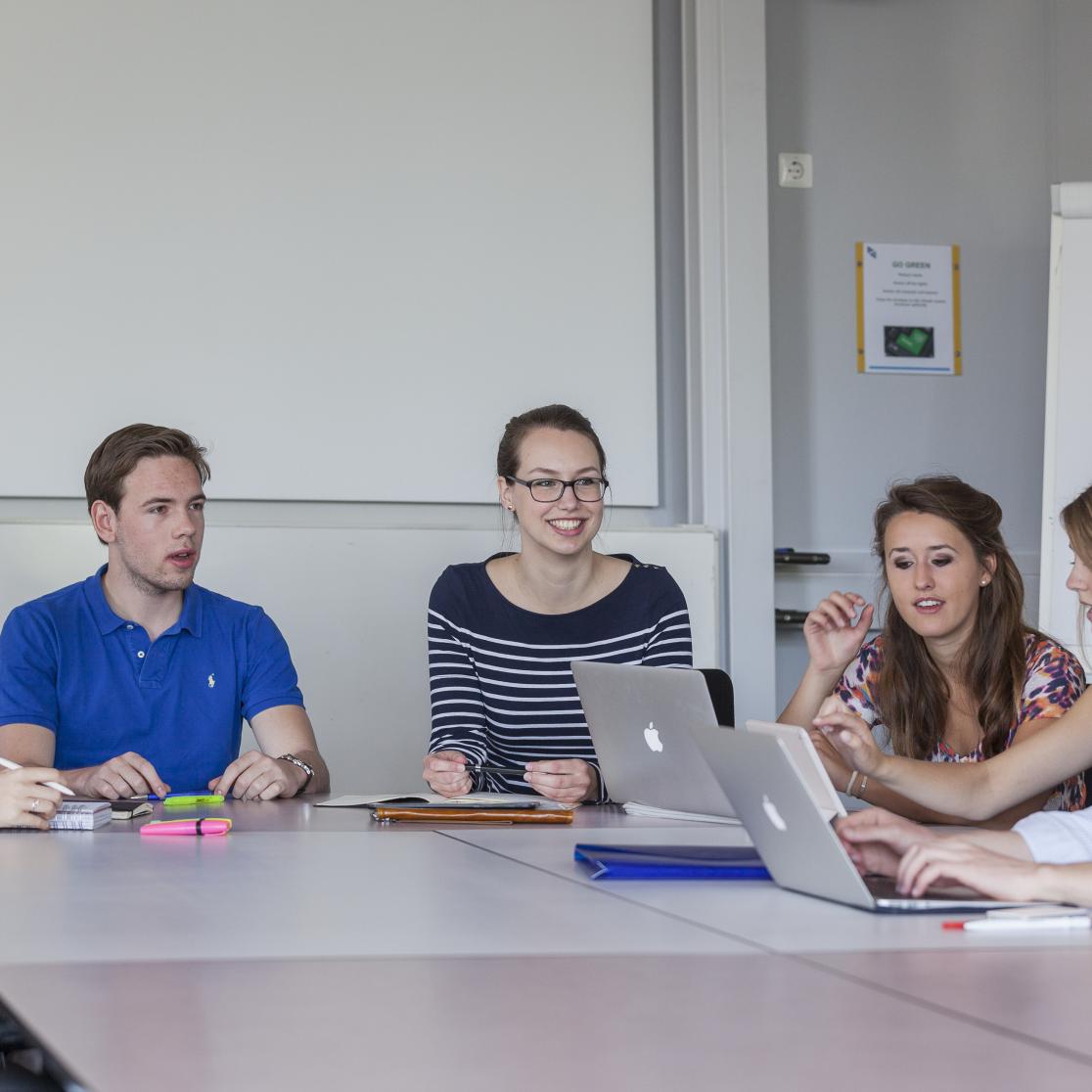
The researchers across the three groups are also part of the Mathematics Centre Maastricht (MCM) Mathematics Centre Maastricht (MCM)
In the Spotlight
- UM and student life
For the course Supply Chain Operations Management, Maastricht University partnered with Deloitte to provide students with a unique, hands-on learning experience. Students assumed the role of consultants, tackling a challenging case: devising an expansion strategy for China for a fictional sports apparel company.
The best-performing teams had the incredible opportunity to present their strategies at the Deloitte Headquarters in Amsterdam. The event was a success, offering students not only the chance to showcase their work but also to expand their professional networks.
This collaboration highlights the value of bridging academia and industry, strengthening the bond between Maastricht University and Deloitte's Supply Chain department. Thank you to Irene van Dam, Sofie Neuteboom, Marc Coumans and Sara Jacobs for making this collaboration happen. And a thank you to Matthijs Hermeling and Arman Rouhani for guiding the students through the case and joining me to Amsterdam. We look forward to more partnerships that prepare our students for their future careers.
Congratulations to all the students who participated!
Quinn Cuijpers, Moritz Röhrig, Francesca Borsotti, Ayla Langohr, Leo Köster, Achilleas Takidis, Hannah (Chaoheng) Tsai, Francesco Ingenito, Jinghan (Skylar) Peng and Chang Lou
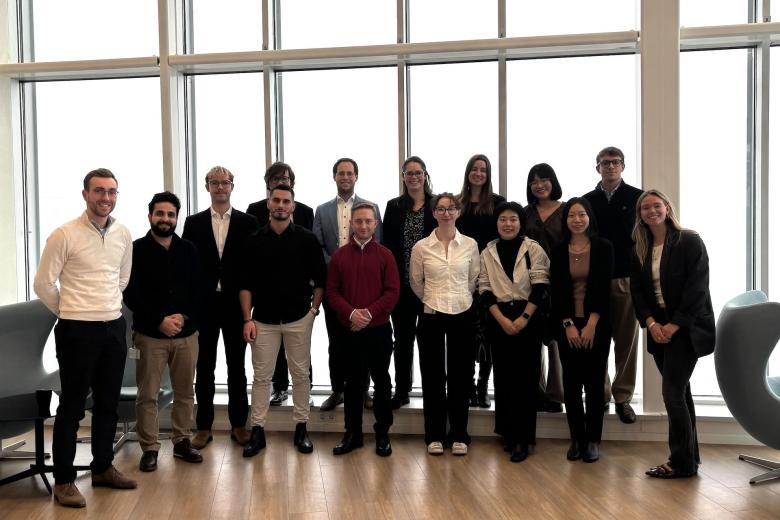
Andrés Perea
My new book has just come out! The title is "From Decision Theory to Game Theory: Reasoning about the Decisions of Others".
It explores games with incomplete information (you are uncertain about the preferences of others), games with unawareness (you are unaware of some of the decisions that others can make) and psychological games (you care about the beliefs that others have about you) from a unified reasoning perspective.
I tremendously enjoyed writing the book, and hope that many students, scientists and casual readers will equally enjoy reading it, and learning from it. And if some people will use it for their own teaching, that would of course be fantastic.
Holding the book this morning was a wonderful feeling. The sweet end of a long but beautiful journey. ☀️

Antoon Pelsser member of the 2022 Parameters Committee
- Quality of life
In the period from February to December 2022, I was a member of the 2022 Parameters Committee. This committee has issued an advice to Minister Schouten of Social Affairs and Employment on the calculation model (“the scenario sets”) that pension funds use to measure the impact of the transition from the old to the new pension system. The law states that this transition must be balanced for all participants in the pension fund, and pension funds must use the calculation model to demonstrate that the transition plan meets the requirements. The link to the report is here: https://www.rijksoverheid.nl/documenten/rapporten/2022/11/29/bijlage-rapport-advies-commissie-parameters-2022

Lissa Melis has been selected as a 2025–26 YoungWomen4OR awardee!
- Science & technology
Proud news from our department: our colleague Lissa Melis has been selected as a 2025–26 YoungWomen4OR awardee!
YoungWomen4OR (EURO/WISDOM) brings together an inspiring cohort of early-career women in Operations Research & Management Science, supporting their visibility, community, and growth. We’re delighted to see Lissa’s work—at the intersection of Operations Research and urban transport—recognised on this international stage.
Please join us in congratulating Lissa and the entire 2025–26 cohort! 👏🌟

MMM 2026
- Learning & innovation
The Mathematical Modelling competition Maastricht - also known as the MMM - is an annual international math competition for high school students.
Teams of up to five high school students – mostly travelling from Germany, Belgium and the Netherlands – spend their Saturday afternoon solving mathematical puzzles. Meanwhile, their teachers are free to attend lectures by UM researchers.
Since the start of the competition in 1995, an estimated 40 teams x 5 high school students x 28 years = 5,800 participants found their way to Maastricht.
A German news article on this competition has been posted in the "Rheinische Post".
Toller Erfolg für junge Mathe-Cracks aus Radevormwald
MMM takes place in January. For more information and to sign up go directly to our events page: MMM competitie - Events - Maastricht University
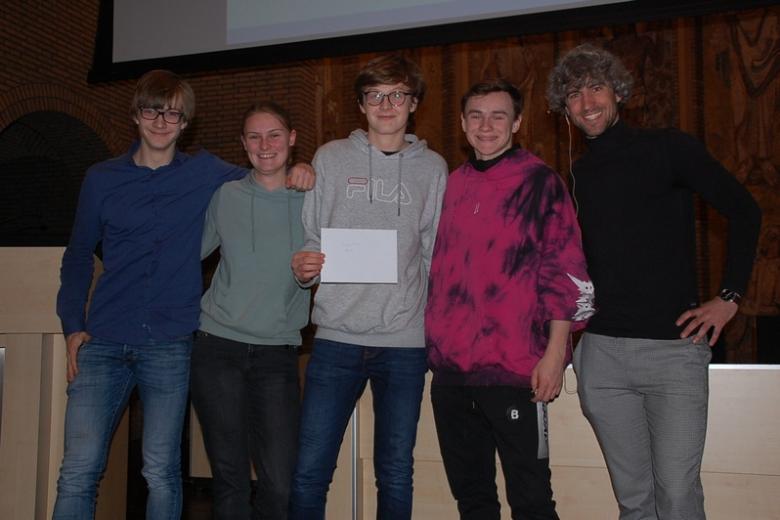
Stephan Smeekes appointed as professor of Econometrics
Congratulations to Stephan Smeekes on his appointment as Full Professor!
Stephan delivered his inspiring inaugural lecture, “Time Will Tell: Econometric Intelligence to Unravel a Complex World”, highlighting how econometric methods can help us make sense of uncertainty and complexity in today’s world. Check it out here: https://lnkd.in/ezrMen2U
The lecture was followed by a warm reception and a festive gathering with colleagues, friends, and family – a fitting tribute to Stephan’s achievements and contributions to our field.
